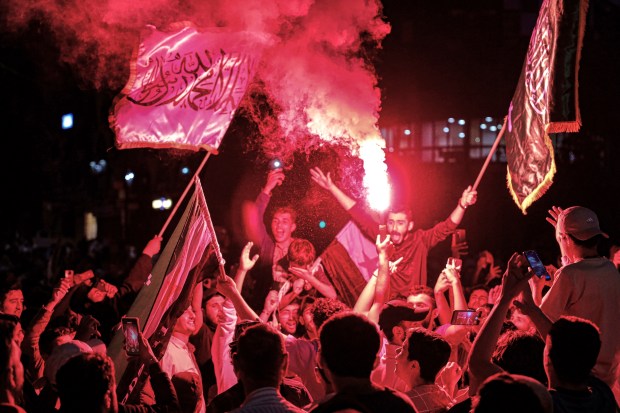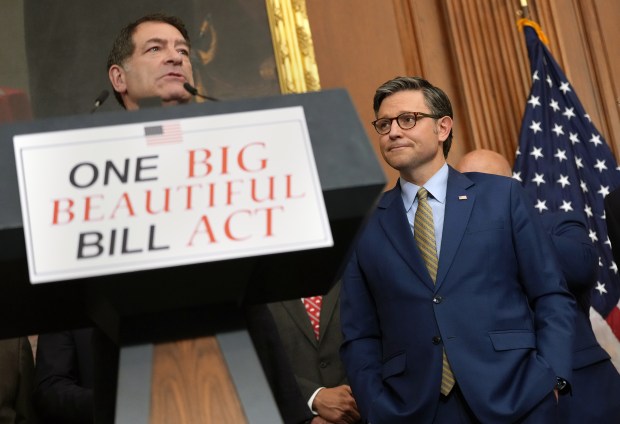At what point in a negotiation do you conclude that the other side is deliberating stalling? In business, the answer to this question is the definition of whether a sale goes through or dies on the vine. In war, it’s a matter of life and death.
Nearly one month since President Donald Trump’s administration opened indirect peace talks between Ukraine and Russia, many have already concluded that the effort is slowly dying, if not already dead. None of the temporary, short-term ceasefire arrangements the White House has struck have been implemented. The 30-day truce, presented with fanfare on March 11, was quickly watered down by Russian President Vladimir Putin after he questioned how the arrangement would work, who would be responsible for ensuring the parties met their commitments and how violators would be punished for breaching the terms. Due to Russian resistance, the 30-day ceasefire on land, air and sea soon became a 30-day ceasefire on energy infrastructure. Even that deal was apparently too much for the combatants to follow through on — Ukraine and Russia continue to hit each other’s power stations and oil depots.
The Black Sea ceasefire initiative, unveiled on March 25, isn’t doing much better. The Trump administration hoped to use a truce in this critical waterway as a starting point for a broader discussion about ending the 3-year-old war for good. But Putin had other ideas, tying a halt in hostilities to the West readmitting certain Russian banks into the West’s financial network. The Europeans saw this play for what it was: a ploy by Putin to chip away at the Western-organized sanctions regime without first having to withdraw his troops from Ukraine.
Putin’s obstructionism has led Washington’s allies in Europe to call the entire diplomatic effort a goner. European Union foreign policy chief Kaja Kallas has accused Russia of “just playing games.” United Kingdom Foreign Secretary David Lammy blasted Putin for stonewalling efforts to bring the fighting to an end. French President Emmanuel Macron had the same assessment. The Ukrainians, of course, never bought into the idea that negotiating a just and lasting peace with Putin was even possible.
Even the White House is getting irritated. Trump, who isn’t shy about reminding people how great he gets along with Putin, is perturbed. On March 30, Trump said he was “very angry” after Putin called Ukrainian President Volodymyr Zelenskyy an illegitimate leader, which is a bit like the late Bernie Madoff calling one of his competitors a crook.
Secretary of State Marco Rubio, who was one of the most stalwart Russia hawks during his 14-year career in the U.S. Senate, isn’t happy either. “The Russians and Putin will have to make a decision about whether they’re serious about peace or not,” Rubio told reporters during a NATO meeting on Friday. “If it’s a delay tactic, (Trump’s) not interested in that. We will know soon enough, in a matter of weeks, not months, whether Russia is serious about peace or not.”
You don’t need a degree in international relations to understand what Putin is doing here. This isn’t the Russian dictator’s first rodeo, and he can read the battlefield as well as the next guy. Putin is stalling because he isn’t desperate for a deal and can afford to hold out for better terms. It wasn’t long ago when Ukrainian forces were routed from Kursk, Russia, after a six-month occupation, an operation that Kyiv hoped would increase its leverage at the negotiating table. That proved a terrible bet for the Ukrainians, since the likelihood of Putin entering peace talks when tens of thousands of Ukrainian soldiers were occupying a piece of Mother Russia was about as low as the S&P 500 doubling in value after Trump slapped tariffs on everybody.
Ukrainian officials are now anticipating a new Russian military offensive into Sumy, right across the border from Kursk, which would stretch an already-overburdened Ukrainian army even further.
Why is this significant? Because facts on the ground are intricately connected to what is and isn’t possible at the negotiating table. Like everything else in foreign affairs, negotiations are all about power. The side with the most power has more chips to play with — and the more chips you possess, the greater chance an agreement is going to meet your preferences. Putin is trying to do two things simultaneously: Feint enough interest in diplomacy to ensure he remains on Trump’s good side while stalling the process to give his army time to capture more ground.
Sooner or later, the Trump administration will lose its patience. It’s already happening in some quarters of Trump’s team. The president will then have a decision to make. Does he up the ante by asking Congress for another massive, multibillion-dollar weapons package to keep the Ukrainian army in the fight and press Putin to actually negotiate seriously? Or does he throw up his hands and walk away from the endeavor, handing the Ukraine file over to the Europeans?
There are risks associated with both. The first is in essence a resuscitation of Joe Biden’s policy on the war, which Trump loudly condemned on the campaign trail as dangerously courting a direct confrontation with a nuclear-armed Russia. It would also be a tacit admission that his attempt at peace failed to accomplish anything of value. The second would drop the biggest war Europe has seen in 80 years squarely in the lap of European powers that may or may not have the capacity to manage the issue adequately.
Whatever course Trump chooses, one thing stands out: Ultimately, it’s the combatants, not the mediators, who will dictate the pace of events.
Daniel DePetris is a fellow at Defense Priorities and a foreign affairs columnist for the Chicago Tribune.
Submit a letter, of no more than 400 words, to the editor here or email letters@chicagotribune.com.




